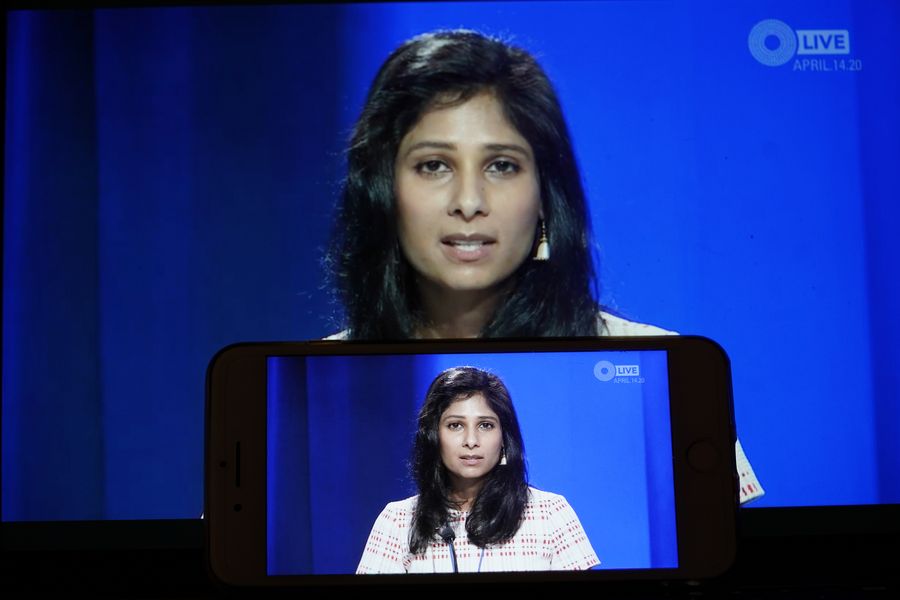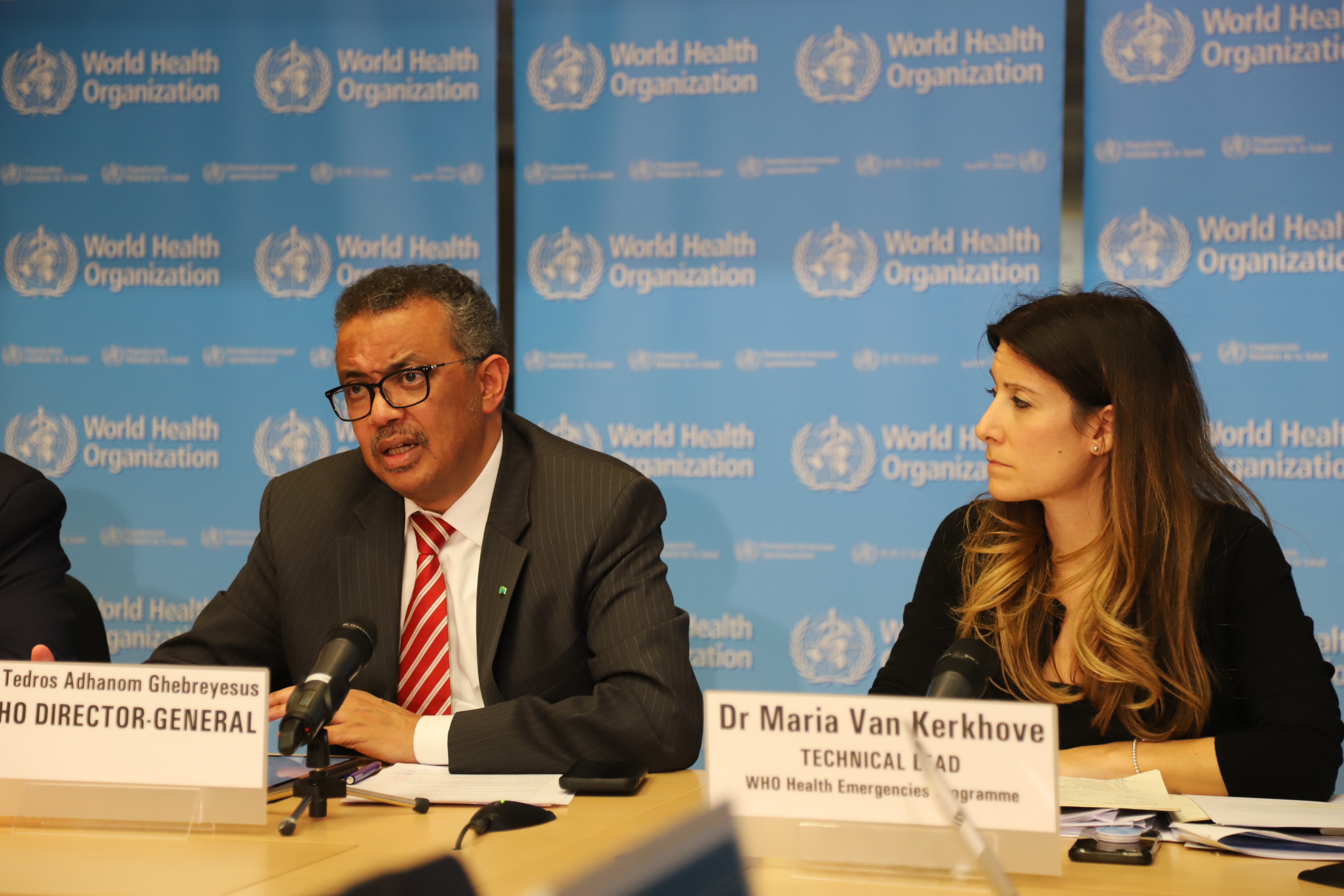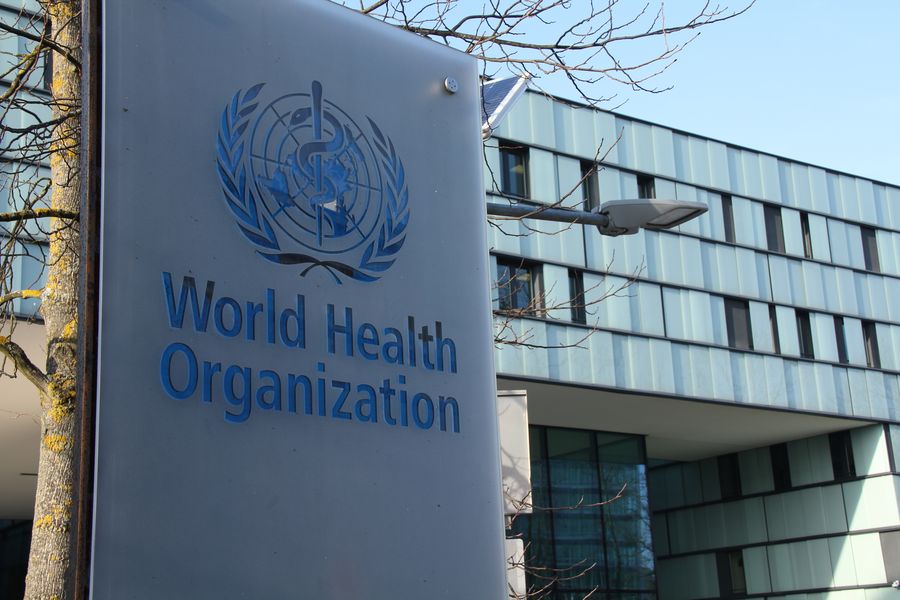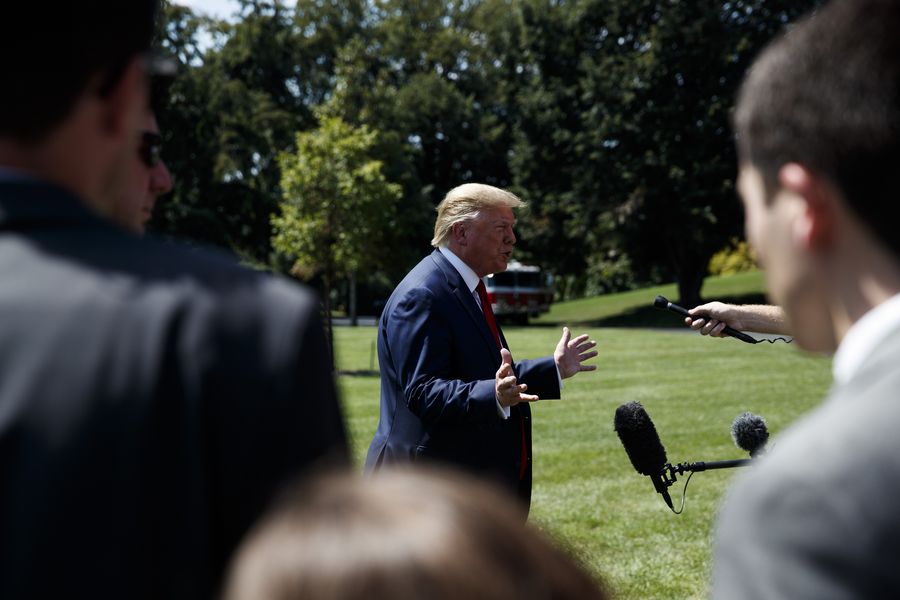
International Monetary Fund (IMF) chief economist Gita Gopinath speaks at a virtual press briefing in Washington D.C., the United States, April 14, 2020. (Xinhua/Liu Jie)
IMF Chief Economist Gita Gopinath said that this is not a time to restrict the trade of medical supplies and essential equipment around the world.
WASHINGTON, April 19 -- The International Monetary Fund (IMF) and the World Bank Group (WBG) have called on countries to keep trade open as the world battles the COVID-19 pandemic, warning that export controls on medical supplies and other essentials could backfire.
At a virtual press conference during the just-concluded spring meetings of the two multilateral institutions, IMF Chief Economist Gita Gopinath said that this is not a time to restrict the trade of medical supplies and essential equipment around the world.
"It is very important that this does not become a future where we reverse all the gains that we've got from globalization," said Gopinath, in response to a question from Xinhua.
Echoing her remarks, Kenneth Kang, deputy director of the Asia and Pacific Department at the IMF, told Xinhua in a recent written interview that countries should avoid trade restrictions on medical and health products to ensure that they go to where they are most needed.
"Countries with limited health care capacity and resources will need international aid to prepare for and weather the pandemic," Kang said. "The health emergency is a powerful reminder of the need for policy coordination and solidarity in an interconnected world," he said.
The IMF official said that countries should cooperate to reduce tariff and non-tariff barriers that impede cross-border trade and investment and to strengthen global supply chains as the recovery takes hold.
Zhang Tao, deputy managing director of the IMF, told Xinhua that he hoped these supply chains would work as best as they can to maximize global production and supply, which makes global collaboration "essential."
"Today more than ever, the global economy would benefit from a more open, stable, and transparent, rules-based international trade system," Zhang said.













